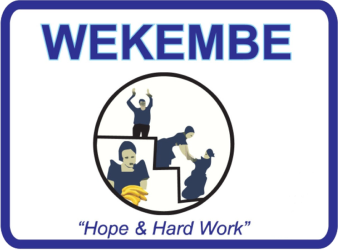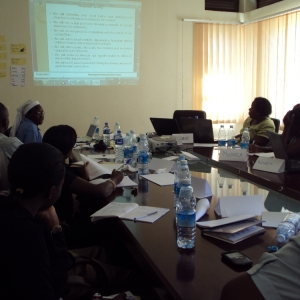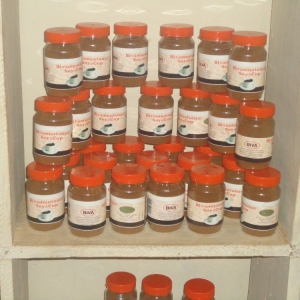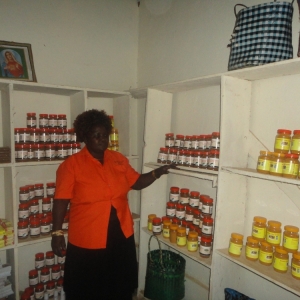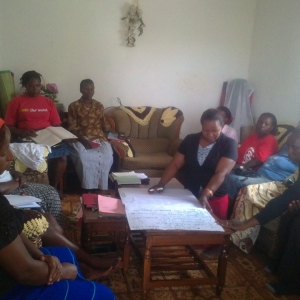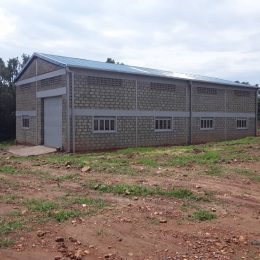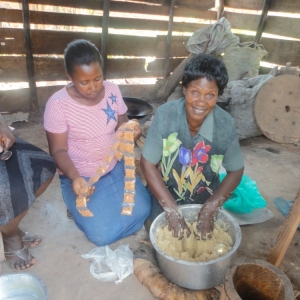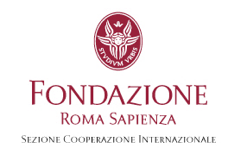Marketing
Wekembe’s core role is financing especially the vulnerable communities, especially women in their small businesses and farming activities for food security and micro commercial farming. However as they are small producers, most of them face problems of marketing their products since they do not have commercial quantities to reach the markets, especially the niche markets.
In order to get these small producers access the markets for their products, Wekembe partnered with VKL Stuttgart, BMZ and ILD to start a programme to assist the small household producers in 9 Districts in Central Uganda to start a marketing system in order to access markets for some of their products, especially farm products. The Marketing Project is to strengthen resilience of smallholder communities through improving access to market structures. The project is implemented in 9 Districts, namely Wakiso, Mpigi, Butambala, Kampala, Mukono, Buikwe, Kayunga, Luweero, Kayunga, Nakaseke.
1. Developing entrepreneurship capacity of 6500 households.
2. Sustainable micro enterprises strengthened for 5120 households and 30% income increased at household level.
3. 260 self-help groups established and strengthened.
4. Contracts for marketing established between agencies and farmers for the following products grain (maize, beans) poultry (eggs, birds) Piggery, mushroom, Banana, Diary, coffee, crafts, flowers, Ginger.
5. Capacity for potential market negotiations improved.
6. Clients having access to marketing credit and savings culture inculcated
7. Marketing networks established.
8. Value chain development for primary agriculture products established.
9. Strengthening of marketing associations that is piggery association, grain association, diary association, bakery association, cottage industry association, crafts association, mushroom association and poultry association, Fruit farmers, Flower farmers.
10. Development of a marketing forum.
Wekembe is to achieve the above through:
· Capacity building for 260 market oriented self-help groups in a gender sensitive manner by October 2021.
· Promotion of sustainable agriculture and market access (sustainable livelihood) to 6,500 households.
· Generating income through the development of common marketing structures.
· Capacity building for skilling in enterprise development for 12 products for 6500 households. The products include:
1. Mushroom
2. Ginger
3. Grain
4. Fruit trees
5. Coffee
6. Bananas
7. Dairy
8. Poultry
9. Piggery
10. Bakery
11. Crafts
12. Flowers
Progress of the project:
By the beginning of 2020, Wekembe established 156 self-help groups with 52% women and it is from these that marketing associations for poultry, mushroom, grain, coffee have developed and being strengthened. Through these groups members bulk their produce to commercial quantities for marketing with the intervention of Wekembe in accessing markets for the farmers’ bulked products. Through the groups, members monitor the quality and standards of the products for the niche markets.
On the promotion of sustainable agriculture and market access, Wekembe promotes smart agriculture production to ensure farmers’ resilience to climate change and sustainable production and quality products for the market at the same time. Wekembe established some contracts for chicken sales between the farmers, Wekembe and some buyers. Contracts are also drawn between Wekembe and grain farmers to ensure quality for the market. Wekembe is member to Eastern Africa Grain Council (EAGC) and The Grain Council Uganda (TGCU) to build capacity and sell members’ grain (maize). This has improved the potential for market negotiations with local, regional and international buyers for farmers’ grain products. Value chain developments on poultry has been realized in that farmers sell dressed chicken and in weights, unlike before when they sold their chicken live and without weighing, fetching far less income to the farmers. Some coffee farmers were also able to sell their coffee direct to exporter, after collectively bulking and processing their coffee to FAQ, thus cutting out middlemen and earning more from their coffee.
Through the project, Wekembe purchased a lorry truck which now transports members’ products from deep in the villages to central storage, which has also been constructed by the project for bulking members’ products. With the central storage system, farmer members are able to store their produce, especially grain to await better prices if they so wish, instead of selling during peak harvesting season, when prices are at the floor. This works as a warehouse receipt system (WRS) for the farmers, since they access some funds to enable them continue with their agricultural
activities before the actual sale of their farm products, while awaiting better prices, and can sell anytime they feel they want to sell.
Wekembe purchased a silage making machine for dairy farmers for sustainable feeding of dairy cows to mitigate climate change effects.
Other achievements by the project:
1. Entrepreneurship capacity developed for households in coffee, grain, mushroom and poultry production.
2. Sustainable micro enterprises strengthened for households and income increased at household level for poultry, mushroom and maize.
3. 156 self-help groups established and are being strengthened.
4. Contracts for marketing established between Wekembe, agencies and farmers for grain, poultry pork, mushroom and coffee.
5. Capacity for potential market negotiations for grain has improved through membership to EAGC and TGCU.
6. Clients have access to marketing credit and the savings culture has been inculcated in the self-help solidarity groups.
7. Marketing networks have been established especially for coffee, grain, poultry and mushroom.
8. Value chain development and value addition for poultry, maize, coffee and mushroom established.
9. Marketing associations for grain association, diary association, mushroom association and poultry association strengthened.
CHALLENGES:
Here below are some of the challenges, which Wekembe has faced in implementation of the project:
1. Collecting baseline data from communities, which generally do not keep farm and household records is a challenge.
2. A market pricing system, which generally does not award for quality products, is a challenge to encouraging quality products.
3. The risk involved with agricultural financing, which highly depends on rain fed agriculture, is high and the need for services like insurance, use of demonstrations for training and close monitoring cannot be underscored.
4. The land tenure system, with small fragmented pieces of land, is a challenge to commercial production.
5. Land ownership: squatters tend not to invest in medium and long-term agricultural activities.
6. Expensive technologies are, generally out of reach of the pockets of the local communities and require soft credit financing.
7. Getting suppliers of genuine, affordable good quality technologies is a challenge.
8. Unit cost of production for small farmers tends to be high and not favorable in a competitive market, therefore the need to train farmers in low cost production techniques for small farmers.
9. Prices of animal and poultry feeds tend to rise very high as a result of low maize production during drought, thus affecting especially the unit cost of production in animal and poultry products.
10. Bringing more youth on the program is still a challenge. Currently active youth on the project activities is about 15%. There is need to introduce and train in more attractive agricultural activities, like vegetable growing at commercial level for the youth, who want IGAs with quick turnover.
11. – Packaging materials are very expensive on the local market, especially for small scale producers/processors, for those who want to go in for value addition and packaging.
